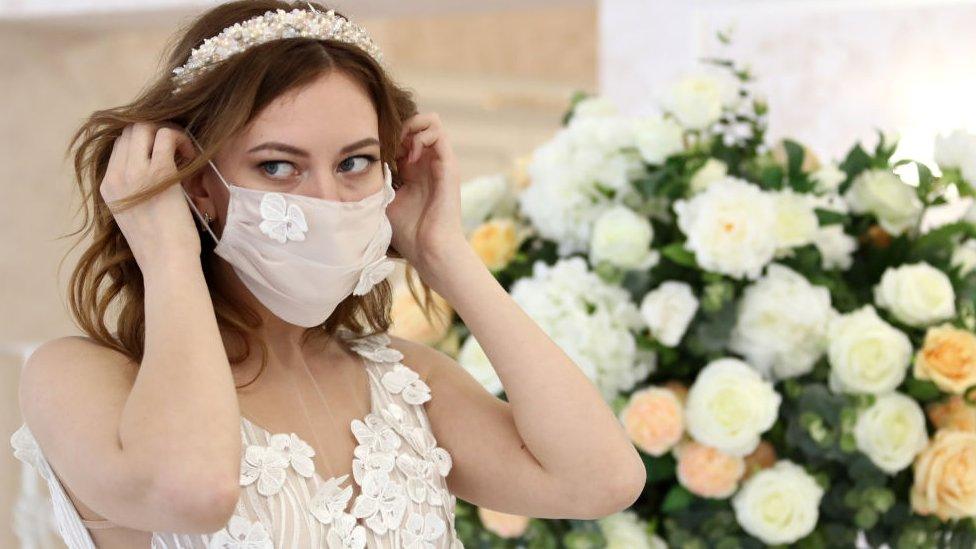Coronavirus: New guidance for weddings in England
- Published
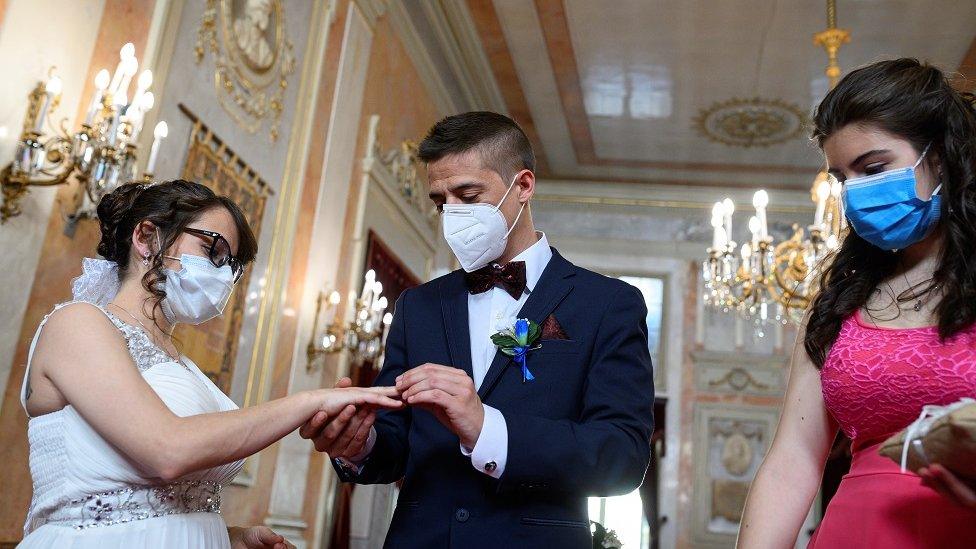
A couple in Madrid getting married in early June
The government has published new guidance on weddings in England, allowing ceremonies of up to 30 people but advising against receptions.
From 4 July, wedding and civil partnerships can go ahead but with only 30 people including the couple, staff such as a photographer and witnesses.
People should socially distance, singing should not take place and hands must be washed before exchanging rings.
Receptions should be small, with only two households able to meet indoors.
Since lockdown began on 23 March, weddings in England have been banned under almost all circumstances.
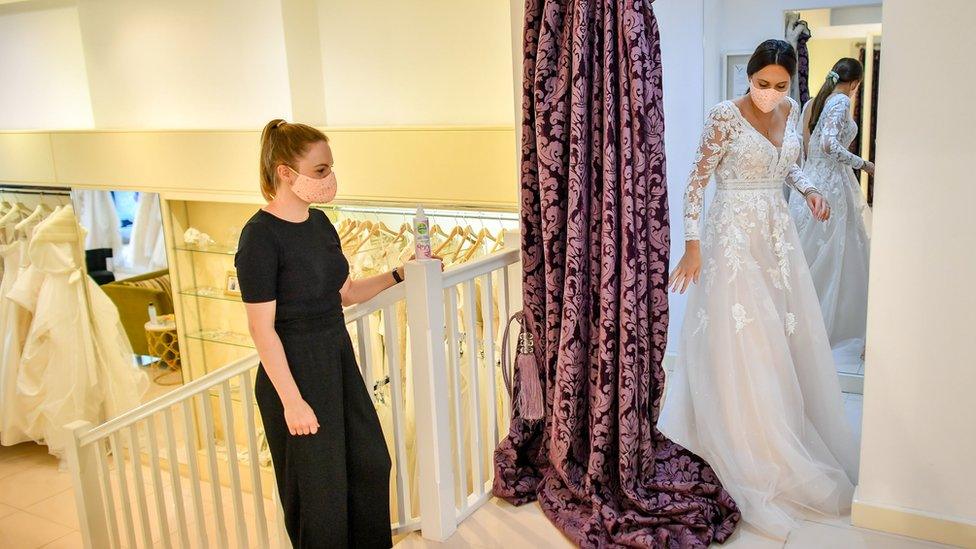
Wedding dress shops have reopened in England, but with masks and social distancing
Small weddings are currently allowed in the other nations of the UK, which set their own lockdown rules.
In Northern Ireland, weddings of up to 10 people are allowed outdoors. In Wales, ceremonies can also take place, but social distancing must be observed, while outdoor marriages and civil partnerships can take place in Scotland.
New rules for England
Under the new guidance for England, external released on Monday, small wedding and civil partnership ceremonies are allowed to go ahead only when they can be done safely and follow social distancing guidelines.
The advice says:
Ceremonies should be kept "as short as reasonably possible" and limited as much as possible to just the parts that are legally binding
No more than 30 people should attend
Everyone should follow the 2m rule if possible, or 1m with extra safety measures
No food and drink should be consumed as part of the event
Hands should be washed before and after the exchanging of rings, and the rings should be handled by as few people as possible
Singing, shouting or playing music at a volume that means people have to raise their voice should all be avoided. Instead of singing, recordings are suggested
Speaking during the ceremony - for example saying the responses to the vows - should not be in a raised voice
Playing instruments that are blown into should be avoided
When singing or chanting is required, only one person is allowed to and the couple or venue should consider installing a clear screen
Venues frequently used for weddings should mark the floor with tape or paint to help people maintain social distance.
The government advice also suggests changing traditional wedding layouts to avoid face-to-face seating, improving ventilation or using face masks.
The requirement to follow the 2m rule - or 1m with extra precautions - will likely rule out the tradition of a father walking his daughter down the aisle, unless they live in the same household.
The maximum number of 30 people includes everybody at the ceremony - including the couple, witnesses, officiants, guests and suppliers such as photographers and caterers.
The guidance also says receptions that "typically follow or accompany marriages or civil partnerships are strongly advised not to take place at this time".
It says small celebrations should only take place if they follow social distancing guidelines, such as groups of up to two households indoors, or up to six people from different households outdoors.
The reason people are urged not to sing or speak loudly is based on scientific advice which suggests doing so produces more respiratory droplets which enter the air and can be inhaled by others.

Hannah's story: 'It won't feel like a wedding'
Hannah Randolph and her fiance are due to get married at the beginning of September but have decided to leave it to "the last possible moment" to decide whether to walk up the aisle.
The 33-year-old from south-west London worries that if they cancel now, their suppliers will be unlikely to offer a refund as the ceremony can go ahead. But she says: "I just don't think it'll feel like a wedding."
"Weddings are every expensive but you can maybe justify it if you're having a party for 100 people," she says. Under the new guidance, she would have to cut that by two-thirds.
For her, uninviting guests will not be an easy task: "My fiance has got three siblings and their partners and a nephew and once you add that up it means you've got to have some really awkward conversations with members of the family."
While Hannah says weddings can feel "frivolous" given the circumstances, the lack of clarity from the government has left her feeling completely in the dark.
"I can go to a pub and have drinks with a bunch of strangers, but can't have socially distanced drinks with loved ones," she said. "It seems nonsensical."

The government says venues that do not follow the guidance could face action from the Health and Safety Executive or the local authority.
Failing to put in place sufficient measures could constitute a breach of existing health and safety legislation and venues could face enforcement notices, the guidance adds.
One man, who wanted to remain anonymous, said he and his fiancee are due to get married at the end of July but the new rules "have made it impossible to have the wedding as planned".
"It's a joke - the venue we have is a farmhouse and we would have been in the courtyard," he said. "We can protest with hundreds of other people, we can gather to celebrate a football game with strangers, yet we cannot have an outdoor reception with our 25 guests. It goes beyond illogical."
Coronavirus wedding delays 'frustrating' for couples in Wales
The 2020 spring and summer wedding season in the UK has been hit hard by the pandemic, with many couples forced to postpone their weddings.
Some couples have held substitute celebrations instead, with one couple in Northamptonshire holding a street party and two hospital workers staging a mock wedding while wearing personal protective gear.
While the majority of wedding companies and venues have been flexible about postponing, some brides and grooms said they had been locked in a battle to get their money back.

Are you a bride or groom planning a wedding? Will you go ahead or will you delay? Share your wedding plans and thoughts on what will, and will not, be allowed by emailing haveyoursay@bbc.co.uk, external.
Please include a contact number if you are willing to speak to a BBC journalist.
WhatsApp: +44 7756 165803
Tweet: @BBC_HaveYourSay, external
Send pictures/video to yourpics@bbc.co.uk, external
Please read our terms & conditions and privacy policy
- Published14 July 2021
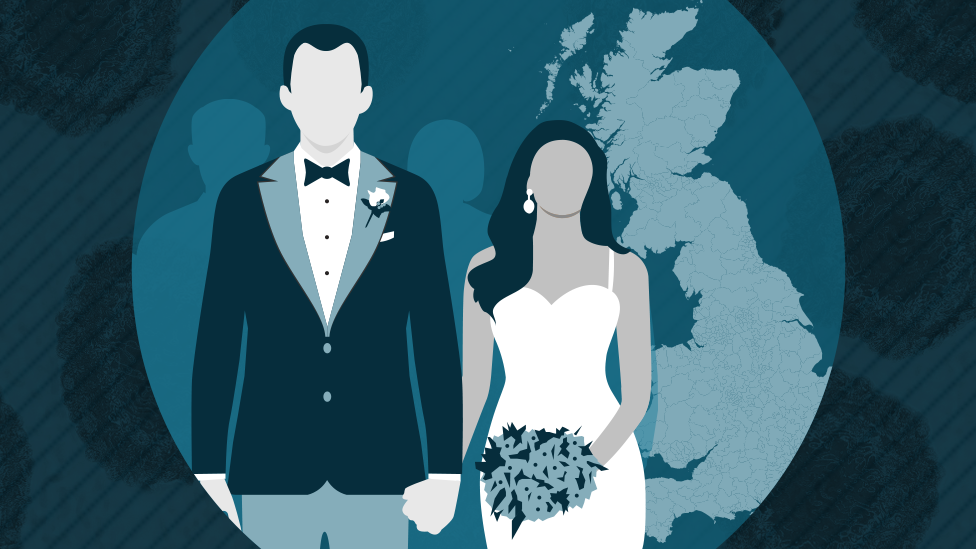
- Published10 June 2020
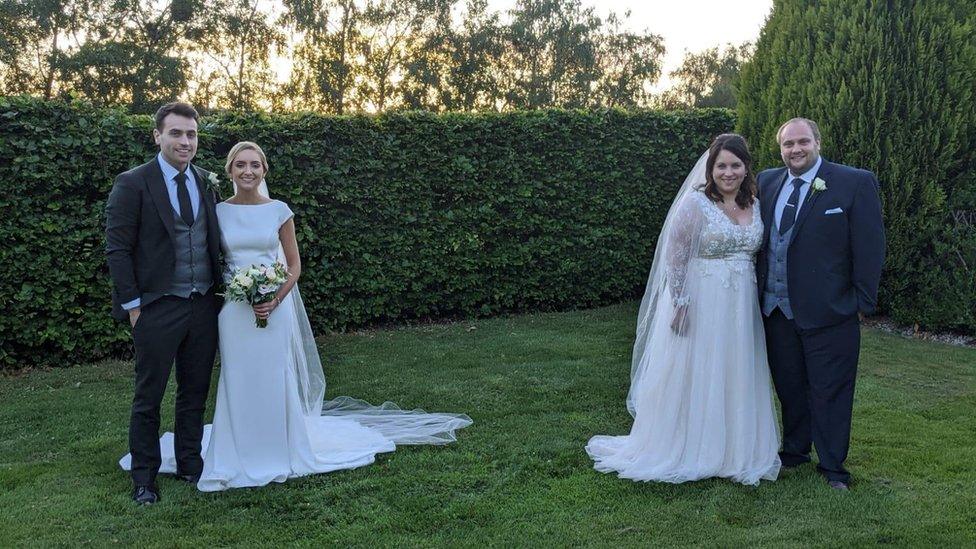
- Published24 April 2020
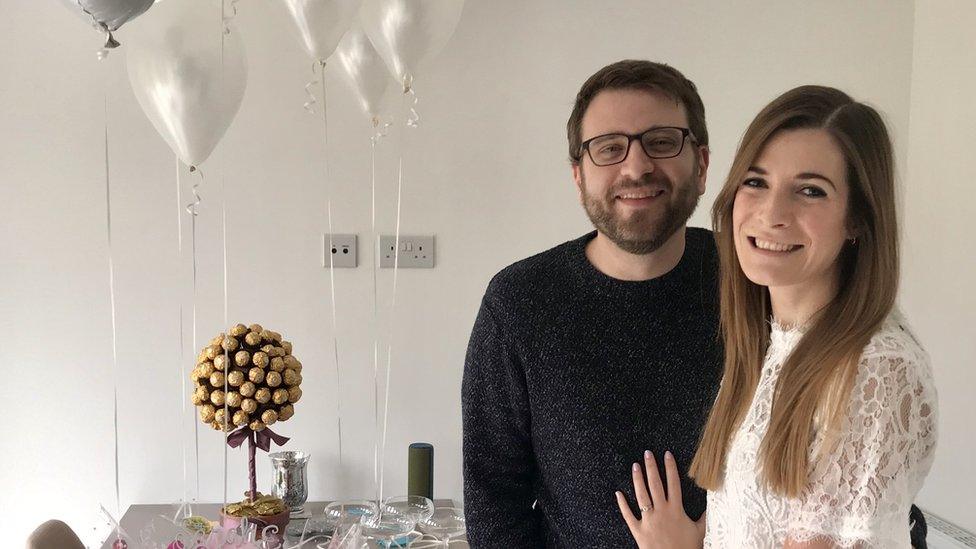
- Published28 June 2020
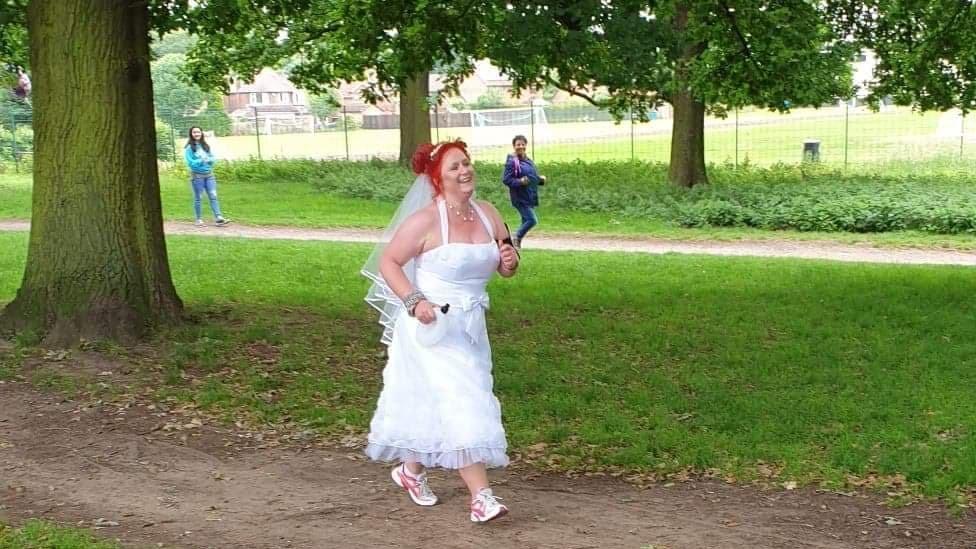
- Published18 June 2020
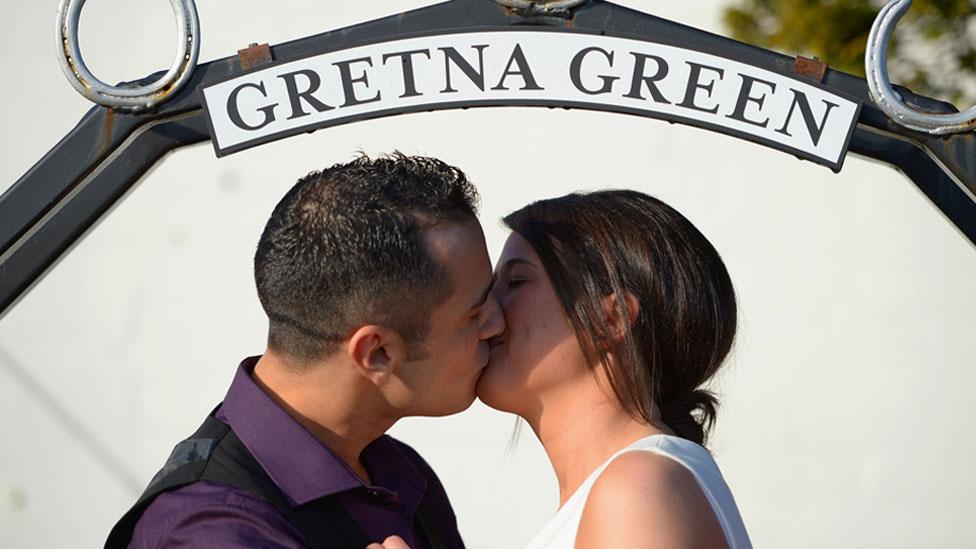
- Published16 June 2020
